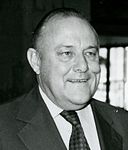New Zealand general election, 1984
|
|
|||||||||||||||||||||||||||||||||||||||||||||||||||||||||||||||||||||||||||||
|---|---|---|---|---|---|---|---|---|---|---|---|---|---|---|---|---|---|---|---|---|---|---|---|---|---|---|---|---|---|---|---|---|---|---|---|---|---|---|---|---|---|---|---|---|---|---|---|---|---|---|---|---|---|---|---|---|---|---|---|---|---|---|---|---|---|---|---|---|---|---|---|---|---|---|---|---|---|
|
|||||||||||||||||||||||||||||||||||||||||||||||||||||||||||||||||||||||||||||
|
|
|||||||||||||||||||||||||||||||||||||||||||||||||||||||||||||||||||||||||||||
|
All 95 seats in the New Zealand House of Representatives 48 seats needed for a majority |
|||||||||||||||||||||||||||||||||||||||||||||||||||||||||||||||||||||||||||||
|
|||||||||||||||||||||||||||||||||||||||||||||||||||||||||||||||||||||||||||||
|
|||||||||||||||||||||||||||||||||||||||||||||||||||||||||||||||||||||||||||||
The 1984 New Zealand general election was a nationwide vote to determine the shape of the 41st New Zealand Parliament. It marked the beginning of the Fourth Labour Government, with David Lange's Labour Party defeating the long-serving Prime Minister, Robert Muldoon, of the National Party. It was also the last election in which the Social Credit Party won seats as an independent entity. The election was also the only one in which the New Zealand Party, a protest party, played any substantial role.
Before the election, the National Party governed with 47 seats, a small majority. The opposition Labour Party held 43 seats, and the Social Credit Party held two. Although National theoretically commanded a two-seat lead over the other parties, dissent within the National caucus (particularly by Marilyn Waring and Mike Minogue) resulted in serious problems for National leader Robert Muldoon.
The 1984 election was called when Marilyn Waring told Muldoon that she would not support his government in the vote over an opposition-sponsored anti-nuclear bill. Muldoon, visibly drunk, announced a snap election on national television. There is debate over whether the election was necessary — Waring had not threatened to block confidence and supply, meaning that the government could still have continued on even if it had lost the anti-nuclear vote. Nevertheless, Muldoon appears to have wanted an election to reinforce his mandate (just as Sidney Holland sought and won a mandate to oppose striking dock-workers with the 1951 snap election).
...
Wikipedia




